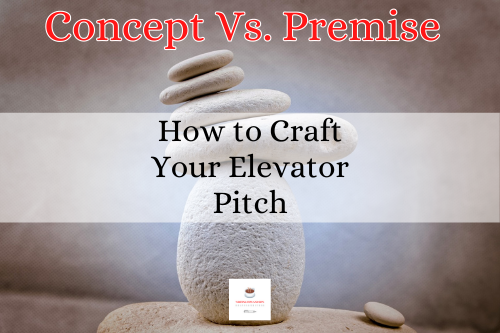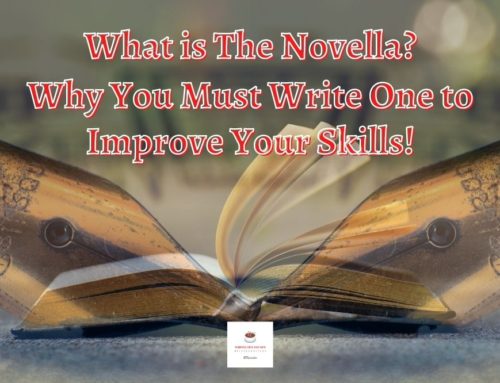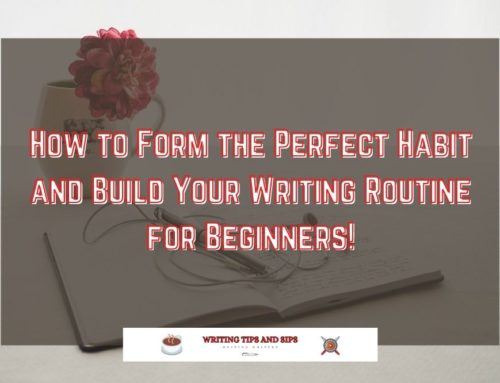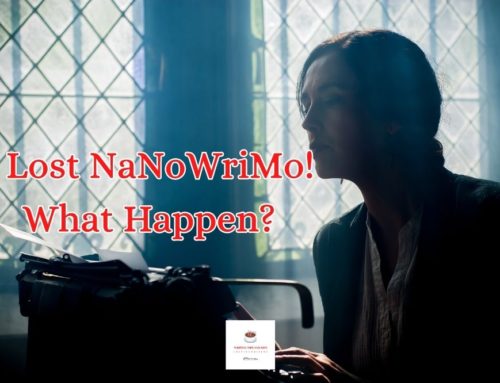Many writers ask themselves the questions; what is my story concept? Do I have a strong premise? And, can I pitch this to a publisher with confidence? You must have a firm answer for the first question to answer yes in the next two.
First, you must define what a story concept is and know the difference between the concept and the premise. The two terms are not as interchangeable as they seem on the surface. They are two entirely different things.
For example, your premise can easily turn into your logline and/or elevator pitch. Yet, your story concept is interesting to no one.
Furthermore, it is crucial to have these two terms defined when outlining your novel. With a strong premise, you will have most of the outline complete, whereas a concept might not be a story at all.
To begin, let’s define…
The Story Concept:

The central idea for your story. It sounds pretty generic at this point in the idea forming stage and isn’t very interesting on paper.
This is your story stripped down to its simplest form – the bare bones of your idea. Think along the lines; a woman falls in love with a man. It’s very simple and to the point with no details that set your story apart from the millions of other stories about the same thing.
The next stage is a high concept. This takes your idea and makes it both unique and straightforward. It’s not quite a story yet, but we are in the right direction.
The high concept will look more like: A woman falls in love with a man from another planet. The idea is still generic and not quite a story; however, it is more unique in adding more elements to the concept.
Now we look at…
The Story Premise:
This gives us specifics about your story. It provides a protagonist, set-up, goals, antagonist, conflict, and sometimes even supporting characters. Like the concept, it is a short one to two sentences of what your narrative is about.
Continuing with our example, a premise looks like: A warrior woman from the Mayan tribe discovers a portal to another world. Entering the doorway, she meets a weak, dumb man who accidentally closes the portal. Together they must find a way to get her home, but after they fall in love.
Now, I’m throwing this premise together on the spot, and it is not perfect. It does, however, show the difference between the three terms quite nicely.
A concept is an idea in it’s most basic, generic form.
The high concept is simple in nature, yet more unique than the concept. And, the premise gets into the specifics of the narrative, providing a basic outline.
The premise is a story; a concept is not.
Why Does it Matter?
 Knowing the difference between these three terms makes the outlining stage more manageable. They all go hand in hand in developing your plot. A concept evolves into a high concept, which then develops into a premise.
Knowing the difference between these three terms makes the outlining stage more manageable. They all go hand in hand in developing your plot. A concept evolves into a high concept, which then develops into a premise.
Knowing your premise makes developing your logline and elevator pitch easy. You already have most of the work done. It’s just a matter of making your pitch more concise and easy to remember.
Why do I need to pitch? I hear you ask.
The pitch is how you get people excited to read your novel. It develops hype and grabs the attention of agents and publishers. Without a good pitch and using the wrong terminology cues agents into thinking you don’t know what you’re selling.
That is bad.
Crafting Your Pitch:
When people ask me what my story is about, I freeze. I try to condense every word I’ve written into a quick blurb and don’t know where to begin. Suddenly, I forget what my novel is about, or that I am a writer. I feel lost, nervous, and anxious.
That’s where knowing your premise saves you. If you have a strong understanding of the meat of your story, you already have a pitch. You have everything you need to confidently tell that stranger or colleague what your story is about.
The premise condenses your protagonist, goals, and conflict into a lovely sentence. The elevator pitch does precisely that; However, it remains spoiler-free while inducing intrigue. You have thirty seconds to pitch an agent or publisher. At that time, they will know if your premise has any weight to it.
A strong premise for a pitch gets people excited – they can see the story and get ideas of how it will play out just hearing you speak. If all you have is a concept, prepare to be asked more questions to get to the real story behind the idea.
Conclusion:
It is crucial to know the difference between the bare-bones concept and the meaty
premise of your story. Not only do you sound smarter when you talk about your novel, and you also build hype surrounding its release. With an engaging premise, people want to know more, and their excitement shows.
Your premise and your pitch are almost the same sentences. The most significant difference is you want your pitch to remain spoiler-free while also inducing intrigue. The premise contains the outline of the plot and may have spoilers.
Both terms come off as interchangeable but are two different entities. Be sure to remember the difference.
Feel free to comment your thoughts below and consider becoming a writing bean!
Additional Rescources:
K. M. Weilhat – Story Concept and Story Premise: Do You Know the Difference
Chris Fox – Brainstorm Your Premise
Mark Cheverton – Story Concept and Premise
C. D. Baron
Latest posts by C. D. Baron (see all)
- What is The Novella? Why You Must Write One to Improve Your Skills! - 03/21/2021
- Wake Up! A Short Story (Work in Progress) - 02/07/2021
- My Top 5 Favorite Reads of All Time (So Far) - 01/24/2021






You talk about condensing the story into a 30-second pitch and providing specifics while remaining true to the concept, but that’s very general advice. I would’ve loved to have seen your process for how to do that. I also would have loved to have seen a specific example on how to do that.
You make an excellent point. I do broadly talk about it in my article and don’t really have any specific examples. That would have helped this article immensely. In looking at my current WIP, it has a high concept of: what if cats and dogs had a more humanoid existence and were at war with each other? You can’t really tell what the story is about from this single sentence, but it’s the idea the story is based upon. Now the premise adds a character, conflict, and gives details of the story. Elvines have vanished off the face of Symphonia… Read more »